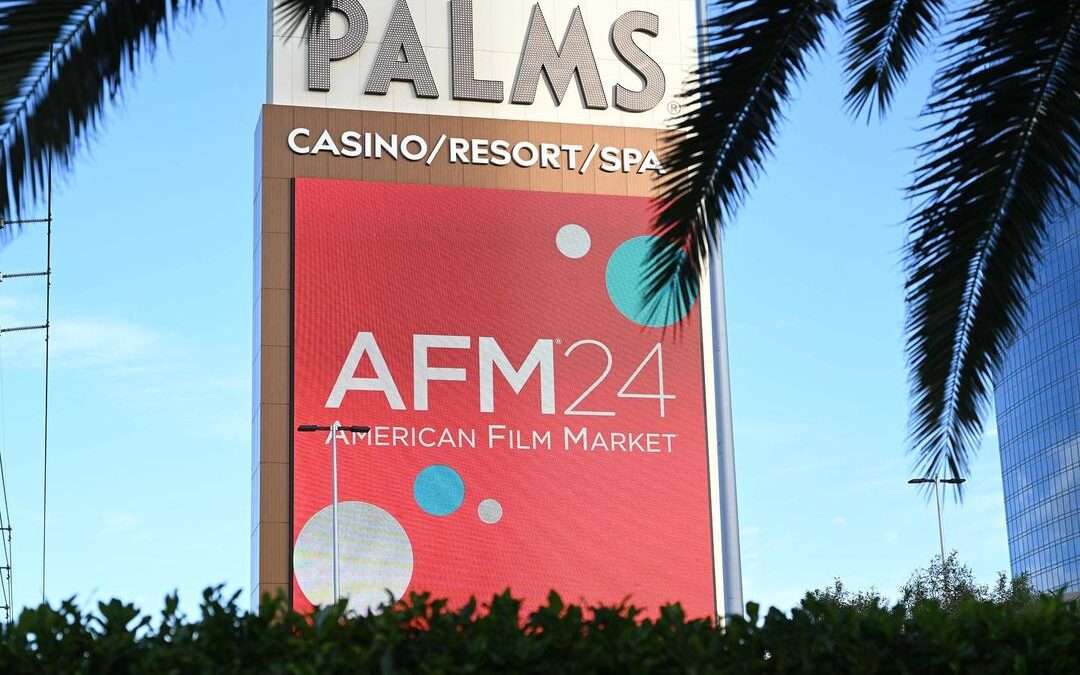By: Aalia Lanius, Editor-in-Chief, UNSUGARCOATED Media
The American Film Market (AFM) made a bold move this year, shifting its long-standing venue from Los Angeles to Las Vegas. This change of scenery was intended to invigorate the event, but as I sat in the audience during the panel The Untold Realities of Global Film Sales: What’s Really Shaping Today’s Markets, I found myself pondering deeper questions.
Clay Epstein, one of the panelists, captured the essence of the conversation with this insight in response to a question on what the panelists look for when it comes to a sellable film, “Intrinsic value—what makes a feature appealing. That’s what we’re looking for.” The panelists spoke candidly about what audiences crave today: transparency and authenticity. These ideals resonated with me deeply, yet as I received text alerts about alarming ideologies spreading in the United States—such as protesters holding signs that read, “Women are property”—I couldn’t help but feel the stark contrast between the industry’s ideals and the world’s harsh realities.

via American Film Market Instagram
Adding to this dissonance was the weight of knowing that a full-blown genocide is happening in Palestine, a tragedy that should matter deeply to creatives and media executives alike. As the founder of UNSUGARCOATED Media and a human rights advocate, I lead my own personal movement to maintain integrity in the pursuit of my visions. Like the legend of Joan of Arc, I am a leader, holding firm to a belief that artists are the pioneers of the human mind, wielding the power and responsibility to influence society positively through representation and accountability.
For me, attending AFM is more than just observing the industry; it’s about critically examining how media and film contribute to critical social issues. While entertainment can and should provide an escape from life’s hardships, it also holds the power to elevate conversations, confront ignorance, and bridge divides.
Yet, as I mingled with attendees, the disconnect was palpable. Conversations often veered towards gambling winnings, late-night escapades, and the superficial glitz that surrounds the event. When I asked how their AFM was going, I heard jokes about pockets stuffed with casino chips, not reflections on the power of storytelling or the state of the world.
This stood in stark contrast to the panelists on stage, who emphasized the need for authenticity, not just in filmmaking but in the people behind the camera. Authenticity, they argued, is not just a buzzword—it’s what audiences and marketers demand in a world that is increasingly connected.
But is our industry truly connected to reality? In October 2023, Netflix launched its Palestinian Stories collection to amplify voices and narratives from Palestine. By October 2024, much of this catalogue had vanished, a disheartening blow to those advocating for Levantine narratives in a media landscape shaped by a century of dehumanization. This is a microcosm of the larger problem: how often do we, as filmmakers and executives, choose to sugarcoat rather than confront?
Yes, AFM is a market, not a film festival. It’s where deals are made and industry players rub elbows. But even markets have the power to influence the stories that get told. There are those in this industry who create for impact and goodness, those who create for pure artistic expression, and those who chase the glitz, fame, and cash. The latter group often dominates, and that imbalance shapes the films we see and the voices that are silenced.
As I reflected on the panel’s insights, I couldn’t ignore the weight of the world outside those walls. From climate change to fascism creeping into governance, the stakes for humanity—and for media—have never been higher. For me, the question isn’t just what makes a feature appealing but what makes it meaningful. My purpose as a creative and executive is to use media to heal, to tell the truth, and to foster proper representation of history and humanity.
AFM 2024 was a reminder of why I do what I do: to be UNSUGARCOATED in a world that often prefers to look away. As the industry grapples with its role in these shifting times, I’ll continue to champion stories that connect us, challenge us, and remind us of the shared humanity we too often forget. Whether AFM remains in Las Vegas, returns to Los Angeles, or moves somewhere else, I hope they will look to do the same.

